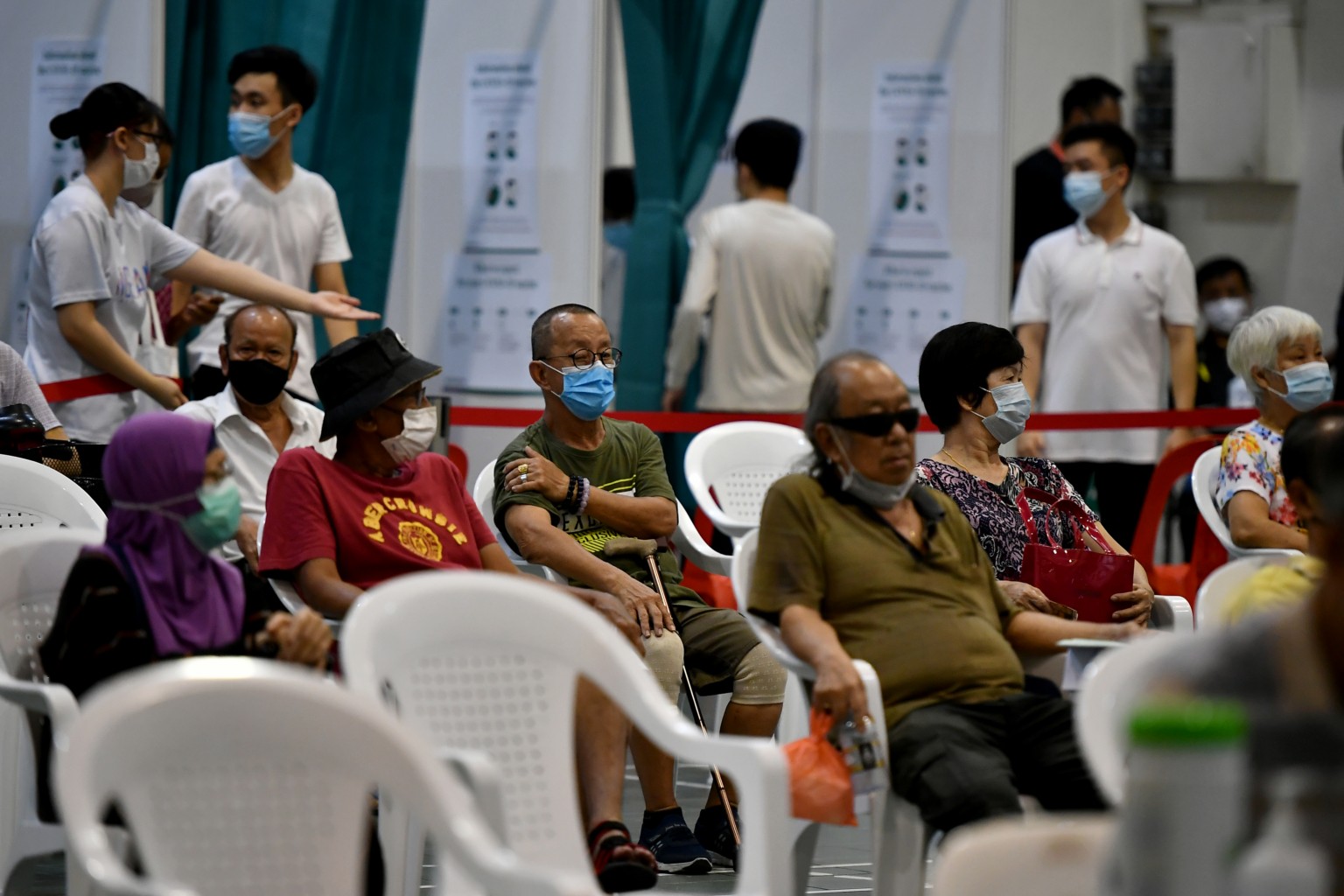Moderna booster more effective for those over 60 who took Pfizer jab: NCID
Sign up now: Get ST's newsletters delivered to your inbox

Even at 28 days after vaccination, average antibody levels in older people remained 1.5 times higher in those who took the Moderna booster.
PHOTO: ST FILE
SINGAPORE - A booster shot with the Moderna vaccine offered older people better protection against Covid-19 if they had previously taken Pfizer jabs, researchers at the National Centre for Infectious Diseases (NCID) have found.
Seven days after taking a booster shot, people above the age of 60 who took Moderna had an average antibody level that was twice as high as those who took the Pfizer-BioNTech/Comirnaty vaccine, the study showed.
This was consistent across all variants of concern of the Covid-19 virus, said NCID in a press release on Thursday (March 17).
Dr Barnaby Young, head of the Singapore Infectious Disease Clinical Research Network in NCID, said the aim of the study is to build local data on understanding immunity towards the disease through booster shots.
"The emergence of variants capable of evading protective immunity remains a concern and highlights the need for a long-term Covid-19 immunisation strategy," he added.
Dr Young had co-authored the study which was published in SSRN, a science research journal, on Thursday. It has yet to be peer-reviewed.
The study, conducted between Oct 12 and Dec 3 last year, involved 100 participants who had received the Pfizer shots as their primary series of Covid-19 vaccination.
Half of the participants were above 60 years old.
Researchers observed that even at 28 days after vaccination, average antibody levels in older people remained 1.5 times higher in those who had taken the Moderna booster.
However, in younger adults, antibody levels were similar between the two vaccines.
The study involved blood samples collected 28 days before the booster shot, on the day of the booster shot but before the injection, and seven days and 28 days after the shot.
For those older than age 60, researchers noted that neutralising antibody levels against the Omicron variant with a Moderna booster were at 84.3 per cent 28 days after the shot versus 72.8 per cent with a Pfizer-BioNTech/Comirnaty booster.
Neutralising antibodies are thought to play an important role in immunity against the coronavirus.
Dr Young said that based on the results of the study, taking any booster shot helps increase immunity against the Omicron variant, even though it has been found to be able to escape immunity among fully vaccinated people.
He added: "The magnitude of the antibody boost is likely to offer significant protection against infection with this variant.
"Individuals at higher risk of severe Covid-19 such as older adults 60 years old and above are more likely to have low antibody levels six months after the primary vaccination series, so it is important that this group receives a booster shot."
NCID said the research is part of an ongoing study it is leading on different vaccine combinations and immunity.
In the booster-shot study, it found that vaccine reactions were common, but were mild and short-lived.
Common vaccine reactions were pain at the injection site within 72 hours of a booster shot, fatigue, followed by muscle pain.
The study added that in the older age group, fever and weakness occurred more frequently in those who received Moderna as a booster dose, and that no participant had a serious side effect.
Researchers will continue to follow participants and collect blood samples six months and a year after their booster shots to monitor waning of antibody levels.
They will also study the effects of mixing the Covaxin vaccine into a vaccination regime.
NCID said it will include other vaccines in the future, including Nuvaxovid, and could involve up to 600 participants over a range of ages and ethnicities to reflect Singapore's population.
It noted that the observations from the latest study complement other international trials.
In February, a study by researchers in Singapore, including Professor Wang Lin-Fa from Duke-NUS Medical School, found that getting a different brand of mRNA vaccine as a booster can reduce the risk of infection.
The study, which involved data from more than 700,000 participants, was published in peer-reviewed Journal Of The American Medical Association.
In January, an American study of 239 vaccinated people found that the best antibody protection came from a two-dose series of one of the mRNA vaccines, either Pfizer or Moderna, followed by an mRNA booster.
The study was conducted by a team of researchers from the Ragon Institute at Massachusetts General Hospital, the Massachusetts Institute of Technology and Harvard University.


